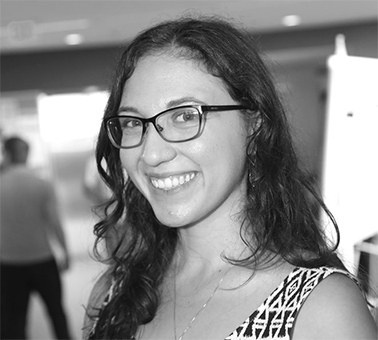Sarah Lipitz
 Gutchess Laboratory
Gutchess Laboratory
Department of Psychology
Brandeis University
Effects of Age on Recruiting the Medial Prefrontal Cortex During Self-Referential Encoding
Poster Abstract
The medial prefrontal cortex (mPFC) is recruited during self-referencing, a cognitive process in which information is related to oneself. In one reported fMRI experiment, younger and older adults were asked to rate adjectives for how well they described themselves; after a 30-minute delay, participants completed a surprise recognition task probing for those adjectives. The results of this study suggest that mPFC recruitment is associated with successful encoding of selfreferential memories in both age
groups. However, focal differences in neural activation seem to arise between younger and older adults, where younger adults recruit regions involved in emotional processing while older adults recruit regions involved in cognitive control. The present study aims to further understand the effect of age on neural activation during successful self-referential encoding by using more nuanced analyses, such as functional connectivity and multivoxel pattern analysis, or MVPA. Preliminary analyses reveal that both younger and older adults recruit mPFC when encoding adjectives later successfully recognized, yet older adults recruit regions associated with cognitive control such as middle frontal cortex and superior prefrontal cortex. Future connectivity analyses will aim to detect regions functionally linked to mPFC recruitment for younger versus older adults, while MVPA analyses will aim to predict age group and remembered versus forgotten trials based on voxelspecific patterns of neural activation.
Personal Statement
I have been working in the Aging, Culture, and Cognition Lab at Brandeis since my freshman year and spent last summer as a research intern at MGH, but this summer was the first time I had an opportunity to pursue independent research full-time. This opportunity has allowed me to lay the groundwork to spend an entire year asking nuanced questions involving complicated analyses, an opportunity many undergraduates do not receive. Additionally, my experiences this summer confirmed my desire to pursue a PhD and a career in research. Because of this opportunity, I now realize that I am passionate about both science as well as the community science creates. My lab is a place where I always feel comfortable asking for help, discussing a different opinion, and just enjoying the exciting discoveries made by other researchers in our field. As expected with any independent project, my research this summer has been full of challenges; learning to solve my own problems was such an important step in taking ownership of my research. I am so grateful for the ability to have spent a summer asking questions I never thought I could answer in the company of such bright, inspiring, and supportive researchers.